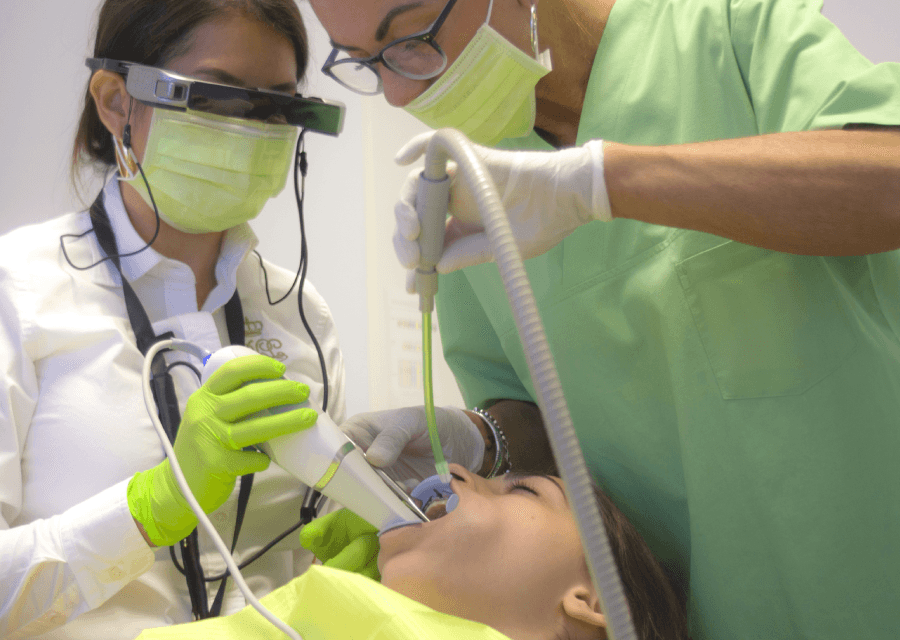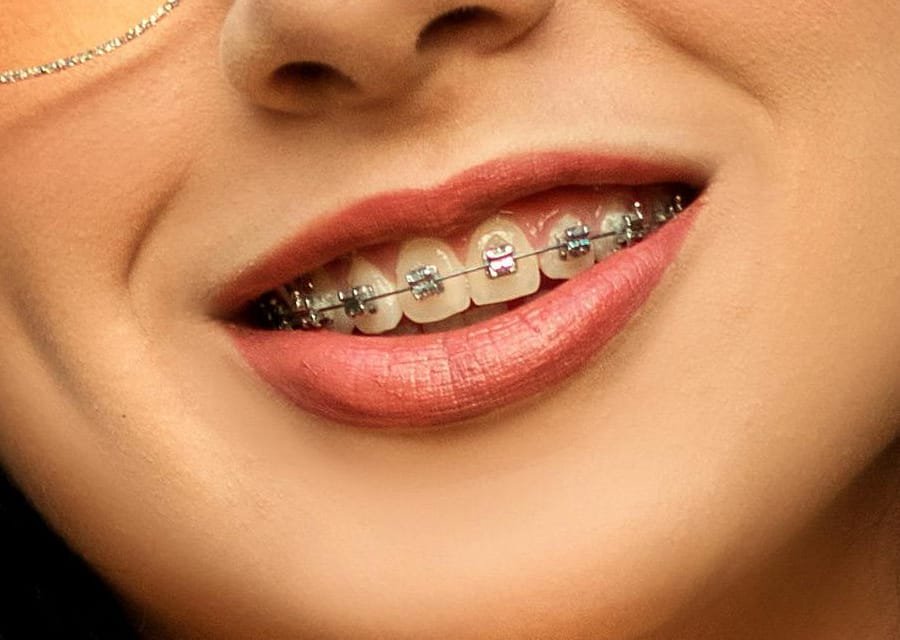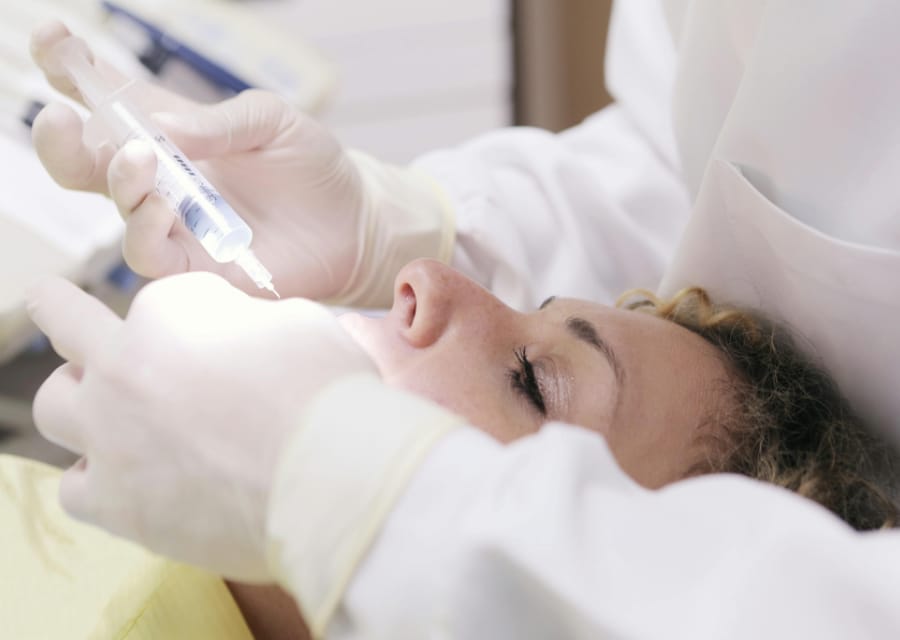
Oral cancer is a serious condition that can affect any part of the mouth, including the lips, tongue, gums and throat. Early detection is key to improving treatment outcomes and survival rates. While many people are aware of common cancer symptoms like unexplained weight loss or fatigue, oral cancer can sometimes present with more subtle signs that are easy to overlook. That’s why regular dental visits are so important—they allow dental professionals to spot early signs of oral cancer that you might not notice on your own.
In this blog post, we will explore the symptoms of oral cancer, why regular dental check-ups are essential for early detection and what you can do to protect your oral health.
What is Oral Cancer?
Oral cancer refers to cancer that develops in any part of the mouth or throat. This can include:
- The lips (lip cancer)
- The tongue
- The gums
- The roof and floor of the mouth
- The inside of the cheeks
- The salivary glands
Oral cancer is often diagnosed when a lump, sore or lesion doesn’t heal within a few weeks. Like other forms of cancer, oral cancer can spread (metastasize) to other parts of the body, making early detection crucial for successful treatment.
Common Symptoms of Oral Cancer
Oral cancer can develop without pain or obvious symptoms, which is why it’s important to know what signs to look for. Here are some of the common symptoms that may indicate oral cancer:
- Sores or Ulcers in the Mouth
A persistent sore or ulcer that does not heal after two weeks is one of the most common early signs of oral cancer. These sores may appear white, red or a combination of both. They can appear on the lips, gums or tongue and may cause pain or tenderness, especially when eating or speaking.
- Mouth or Throat Pain
Pain in the mouth or throat that doesn’t go away could be an early sign of oral cancer. This pain can range from mild irritation to severe discomfort and may affect swallowing, chewing or speaking.
- Lumps or Swelling
Lumps or swelling in the mouth, jaw or neck are another symptom of oral cancer. These lumps might feel hard and can be located anywhere in the oral cavity or throat. Swelling in the lymph nodes (glands that fight infection) in the neck is also a common sign of cancer spreading to nearby tissues.
- Unexplained Bleeding
Bleeding in the mouth without any obvious cause (such as injury or brushing) could be a warning sign. This may occur when the cancerous tissue becomes irritated or ulcerated.
- Persistent Bad Breath (Halitosis)
Chronic bad breath, even after brushing or using mouthwash, can sometimes be linked to oral cancer. This happens when the cancerous cells in the mouth cause an infection or release substances that create foul-smelling odors.
- Numbness or Tingling
If you experience numbness or a tingling sensation in the mouth, lips or tongue that doesn’t go away, it could be a sign of oral cancer. This happens when the tumor presses on nerves in the mouth or surrounding areas.
- Difficulty Swallowing or Chewing
Oral cancer can cause swelling or changes to the shape of the mouth, making it difficult to chew or swallow food. You might feel like food is “sticking” in your throat or that it’s hard to swallow even liquids.
- Changes in Voice or Speech
If oral cancer affects the tongue or throat, it can alter your ability to speak clearly. You may notice a hoarse or weak voice or difficulty pronouncing words.
- Loose Teeth or Ill-fitting Dentures
Oral cancer can cause changes in the gums or the bone structure, leading to loose teeth or discomfort with dentures. This can happen even if there is no obvious dental issue.
Why Regular Dental Visits are Crucial for Oral Cancer Detection
Although some of the symptoms of oral cancer are easy to spot, others are subtle and may not cause pain or discomfort until the cancer has progressed. Regular dental visits are crucial for several reasons:
- Professional Examination for Early Detection
During a routine dental check-up, your dentist will conduct an oral cancer screening as part of the exam. This includes checking your mouth, gums, tongue, lips and throat for any abnormal growths, sores or other signs of cancer. Dentists are trained to detect changes in your oral health that may indicate oral cancer, even if they are not yet causing symptoms.
- Identifying High-Risk Factors
Certain lifestyle factors, such as tobacco use (smoking or chewing), heavy alcohol consumption and exposure to the human papillomavirus (HPV), increase the risk of developing oral cancer. Your dentist can ask about these habits and identify if you are at higher risk. They may suggest more frequent screenings or preventive measures based on your individual health profile.
- Access to Advanced Screening Tools
Some dental offices use advanced technology such as Velscope or OralID to screen for oral cancer. These devices use special lighting to detect abnormal tissue changes in the mouth, making it easier to identify early-stage cancer that may not be visible to the naked eye.
- Early Detection Leads to Better Outcomes
When oral cancer is detected early, it is more treatable and the chances of a full recovery are higher. In fact, the 5-year survival rate for patients diagnosed with oral cancer in its early stages is about 84%. However, if the cancer has spread to other parts of the body, the survival rate drops significantly. That’s why it’s essential to have regular dental check-ups to detect signs of cancer before it progresses.
What You Can Do Between Dental Visits
While regular dental visits are crucial for early detection, there are also things you can do at home to maintain oral health and reduce your risk of oral cancer:
- Check Your Mouth Regularly
Take a few minutes each month to check the inside of your mouth for any unusual changes, such as sores, lumps or swelling. Use a mirror to look at your gums, cheeks and tongue. If you notice anything unusual, see your dentist as soon as possible.
- Avoid Tobacco Products
Smoking and chewing tobacco are the leading causes of oral cancer. Avoiding tobacco products can significantly lower your risk of developing cancer in your mouth and throat.
- Limit Alcohol Consumption
Excessive alcohol consumption increases the risk of oral cancer, especially when combined with tobacco use. Limiting alcohol can reduce your risk.
- Protect Your Lips from Sun Exposure
Just like skin cancer, oral cancer can be linked to excessive sun exposure, especially on the lips. Protect your lips by using lip balm with SPF and wearing a wide-brimmed hat when spending time outdoors.
- Eat a Healthy Diet
A balanced diet rich in fruits, vegetables and whole grains can help maintain good oral health and may reduce the risk of oral cancer. Avoiding excessive processed foods and sugar can also help reduce inflammation and other oral health issues.
Conclusion
Oral cancer can be a life-threatening condition, but when caught early, it is much easier to treat. Regular dental visits are essential for the early detection of oral cancer, as dentists are trained to spot symptoms that may not be visible to you. By staying on top of your dental check-ups and taking steps to maintain good oral hygiene and lifestyle habits, you can significantly reduce your risk of oral cancer and other oral health issues.
If you notice any of the symptoms of oral cancer, don’t wait to see your dentist. Early detection is the key to successful treatment and your dentist is your first line of defense in maintaining a healthy mouth and a healthy life. Make regular dental visits a priority for you and your family—it could save your life.
To schedule an appointment at ‘Sukumar Dental Clinic’ call +91-7418210108 or WhatsApp Dr. Sukumar at +91-9655225002. We take pride in having the top dental clinic in Palayamkottai, Tirunelveli. Alternatively, you can email us at info@sukumardental.com


